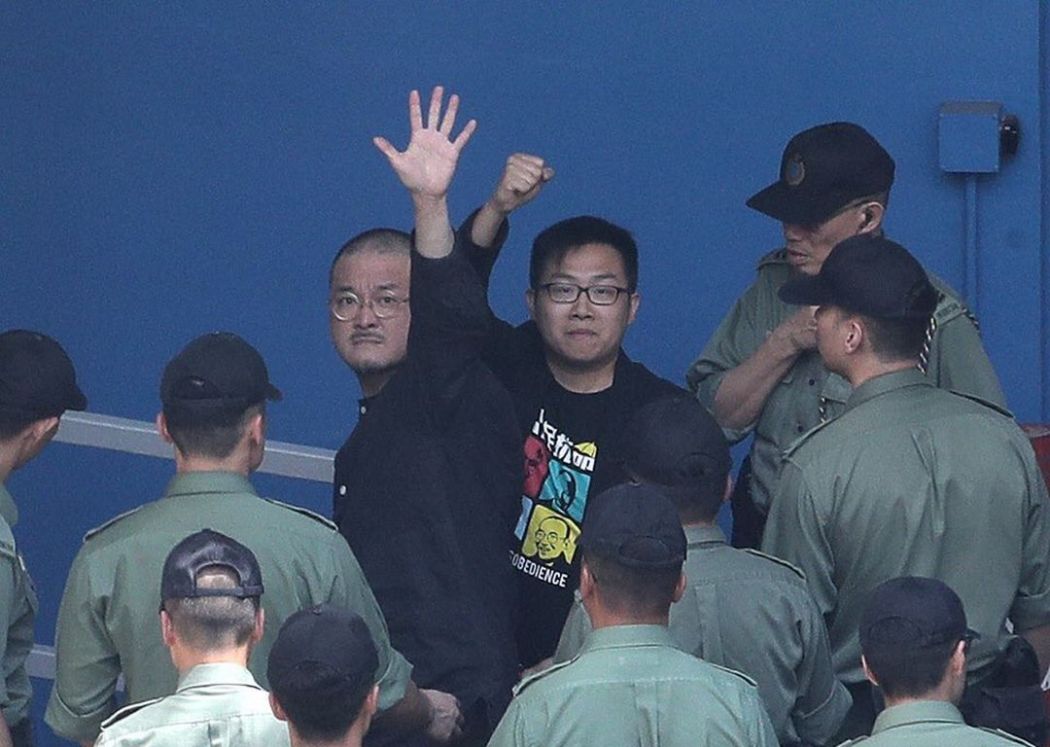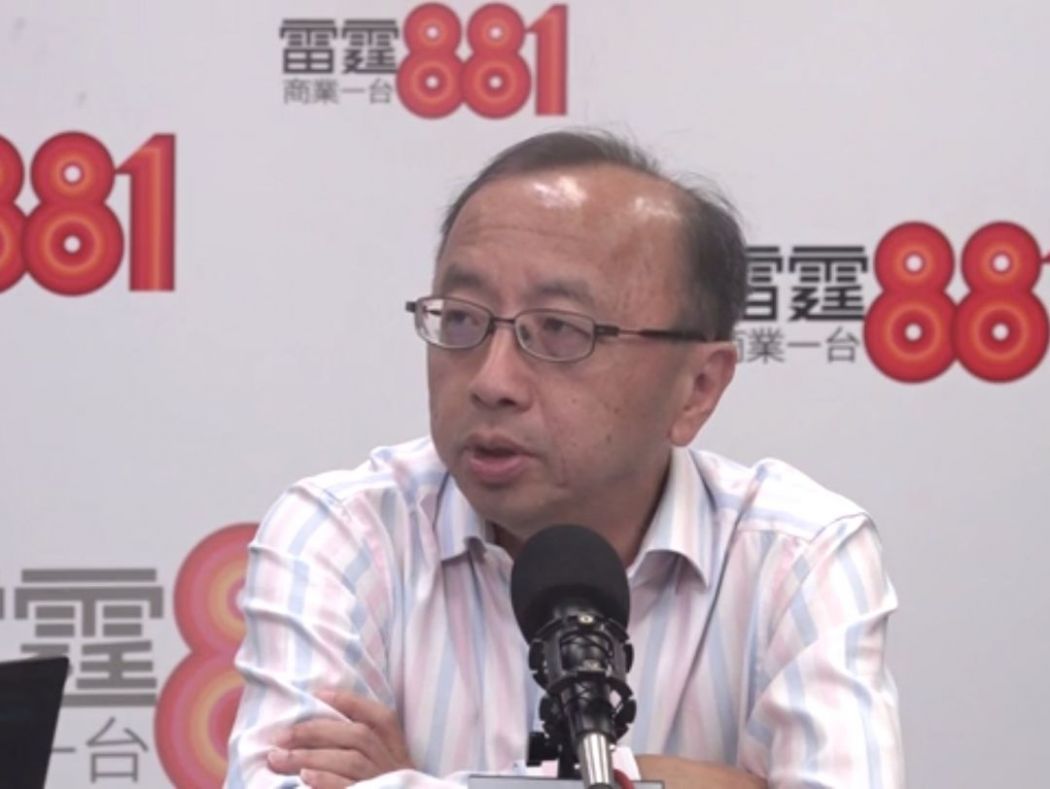An appeal for the four jailed Umbrella Movement activists might be in the works, with some questioning the judge’s reasoning for handing out long prison terms.
On Wednesday, law scholar Benny Tai and retired sociology professor Chan Kin-man were sentenced to 16 months in jail, while activist Raphael Wong and lawmaker Shiu Ka-chun were each handed eight months. The four were transferred to Lai Chi Kok Reception Centre later the same day.

Barrister Steven Kwan, who represents Tai and Chan, said outside the court building that the two activists will appeal their sentences. “It is a bit too harsh. We didn’t expect the [sentence] to be that long, it was more than our predictions,” Kwan said.
Shiu’s lawyer Robert Pang also said the sentence was too harsh, but did not say definitively whether Shiu would appeal.
“Of course we think [the sentence] is harsh, otherwise we wouldn’t be considering an appeal. In a peaceful protest, unless there are any special or severe criminal activities, defendants should not face immediate jail terms,” Pang said.
A long prison term may have professional ramifications for Tai and Shiu: the former is a tenured law professor at the University of Hong Kong, and the latter is a lawmaker representing the social welfare functional constituency. In the Legislative Council, a lawmaker who is jailed for more than one month can be removed if the motion is passed by a two-thirds majority.

Reverend Chu Yiu-ming – another convicted Umbrella Movement activist who had his jail sentence suspended – said on Thursday that he would appeal his conviction. He said on a radio programme that he would need another three to four weeks to consult his lawyers before making a decision.
In the meantime, the Department of Justice – who prosecuted the activists – said that it was studying the court’s ruling.
‘Room for appeal’
Eric Cheung, the principal lecturer at HKU’s law school, said on Thursday that there is a good chance the activists’ cases will eventually be heard at Hong Kong’s top court.
The judge had “forgotten his role” in deciding the sentence, which was supposed to be equivalent to that of a jury, he said on a Commercial Radio radio programme.
Cheung added that he believed the judge made an error in law: “[The judge] seemed to have used ‘whether the activists apologised to the public’ as a dividing line between an immediate jail sentence and a non-custodial sentence, and on this legal point he was wrong.”

“It is just common sense: does it mean if the nine activists apologised to the public, then there is no need for them to go to jail, and vice versa?”
See also: How one convicted Umbrella Movement activist helped the others prepare for jail time
The judge also didn’t give enough weight to the civil disobedience element and peaceful nature of the protests, Cheung added.
The sentence also drew widespread attention from local and international bodies, with the local pro-Beijing camp saying that the jail terms were relatively light.
On Wednesday evening, over a hundred people gathered outside Lai Chi Kok Reception Centre to pay tribute to the four jailed activists.
Kong Tsung-gan‘s new collection of essays – narrative, journalistic, documentary, analytical, polemical, and philosophical – trace the fast-paced, often bewildering developments in Hong Kong since the 2014 Umbrella Movement. As Long As There Is Resistance, There Is Hope is available exclusively through HKFP with a min. HK$200 donation. Thanks to the kindness of the author, 100 per cent of your payment will go to HKFP’s critical 2019 #PressForFreedom Funding Drive.

